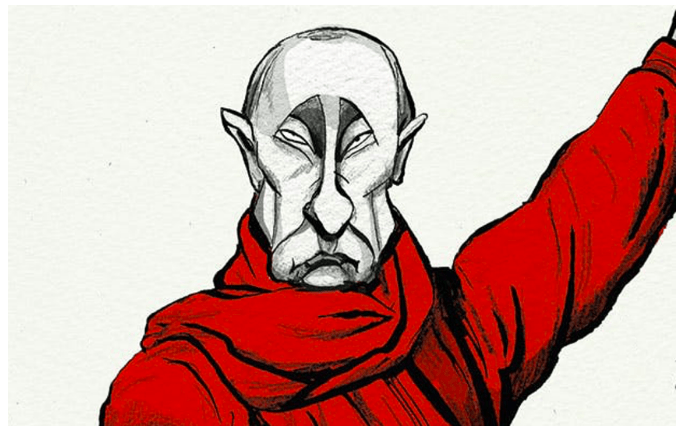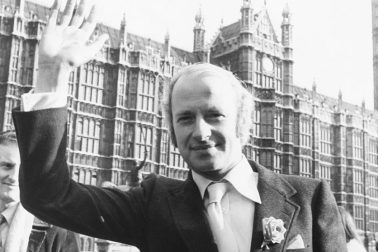Alexei Navalny, Russia’s leading opposition figure, demonstrated unfathomable courage in returning home after the Kremlin had poisoned him with Novichok. Arrested on arrival, Navalny is now holed up in Moscow’s notorious Sailor’s Silence transit prison. Yet as he languishes behind bars, Navalny poses his greatest threat yet to Vladimir Putin’s regime. And today, on the streets of Russia, things could come to a head in the fight between Navalny and Putin.
This week, Navalny’s Anti-Corruption Foundation released its biggest exposé yet: a YouTube investigation of Putin’s voracious greed. Providing new, detailed images of the Russian president’s gargantuanly gauche billion-dollar palace, the video has been watched 50 million times in just 72 hours. It has eclipsed Navalny’s 2017 video investigation into then-prime minister Dmitry Medvedev’s property empire, which sparked large-scale protests and is seen as contributing to the demise of Medvedev’s career.
With these viewing figures, the Kremlin is understandably nervous ahead of Saturday’s protests, ordering Tik Tok and other social media to ban calls to protest, threatening teachers and parents to stop children from attending, and arresting Navalny’s associates. The latter have mobilised on an impressive scale; protests are planned in sixty cities, extending beyond Navalny’s metropolitan base and into the regional Putin heartlands. Given that the protestors will be met by thousands of police and national guardsmen whose job is not to protect them but rather the state from them, it is remarkable that these protests are taking place at all.
We must still ask ourselves why we so gleefully welcome the lieutenants of a regime that uses chemical weapons on its enemies
Bismarck once said that Russians are ‘slow to saddle up but then ride fast’. Are his words an accurate reflection of what is unfolding in Russia? It might seem so. After 21 years with Putin in charge, it can feel naïve, even foolish, to be enthused by protests or to dare to imagine a Russia with a new leader. But a Russia where corruption is punished and power changes hands in a free, fair, and competitive manner is possible. Navalny is the only credible opposition to the Kremlin offering this vision of hope. Has his time come?
Let’s hope so. But either way, the least the West can do is help Navalny tackle the corruption he has risked his life to expose. The UK government has said many times that its disagreements are with the Russian state, not its people: there is no time like the present to prove it.
Earlier this week, the Executive Director of Navalny’s Anti-Corruption Foundation, Vladimir Ashurkov, released a pre-agreed list of eight individuals whom Navalny asked the West to sanction if they were ‘serious about encouraging Russia to cease attacking human rights and to rein in corruption.’ Of these individuals, at least three have close links to or assets in the UK.
Since the 1990s, the UK has turned a shamefully blind eye to the transfer of dubious Russian wealth onto our shores. This places a moral imperative on us in particular to assist the Anti-Corruption Foundation and introduce sanctions, or at least investigate the evidence. Given that Navalny’s team has published reams upon reams of this evidence online, the hunt for proof should not take too long.
Besides, even if we suspend our disbelief, pretend that Putin’s friends all share a unique entrepreneurial ability and put the question of corruption aside, we must still ask ourselves why we so gleefully welcome the lieutenants of a regime that uses chemical weapons on its enemies both here and at home.
Like it or not, the UK is deeply enmeshed in the battle against Kremlin corruption already. Sanctioning Putin’s corrupt associates, especially those linked to the UK, is our chance to prove the Kremlin propaganda machine wrong when it tells Russians that all the West cares about is itself and its money, that we have no values, that our institutions and worldview are bankrupt.
This is how the UK moves beyond empty virtue-signalling and towards meaningful support, not only for Navalny but, much more importantly, for his and others’ battle against a kleptocratic regime that spews hatred and inertia into its own people (and increasingly into ours).
Navalny faces a system that caricatures the concepts of democracy and liberalism to convince Russians that there is no point hoping for competitive elections, democratic representation, or a fair legal system: any attempt at change will just end in the chaotic and violent Yeltsinism of the wild 1990s. This is an important part of what keeps Putin in power: the impossibility of believing in another, better, way.
Yet Navalny offers the antidote to this disabling cynicism and apathy. His campaign is energising. It presents an exciting vision of a ‘bright future for Russia’. This energy was etched on the faces of legions of volunteers during his 2013 Moscow mayoral campaign and his 2017 presidential campaign. Now, in 2021, it is inspiring ordinary Russians, especially the young, to take to the streets again.
This time, the UK must side with Russia’s future and with its people, rather than its ageing corrupt elites. After all, in the end this is our fight too.






Comments